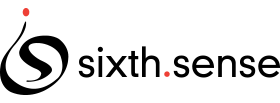
Adjusting to life during the COVID-19 pandemic
It’s taking many of us a while to adjust to a very different way of working. For some people, the experience is already feeling quite stressful. Here are a few ideas, drawing on our TREES model of resilience. The team here at Sixth Sense hope this helps
Thinking
We’ve noticed a lot of people processing feelings of loss. In many cases, we have lost the freedom to choose how we work and live. With loss comes grief and grief follows a pattern:
- Our first reaction is denial. We saw this when social distancing was first introduced, with some people only changing their behaviours superficially and in all other respects, carrying on as normal. They were essentially minimising the threat of the pandemic in their minds. The result of the collective act of denial has been the restrictions we are now living under. Denial is rarely helpful. Try to recognise it as a mental defence mechanism.
- After denial, there’s usually a feeling of anger. Anger is a powerful emotion that’s better worked through than suppressed. This is where talking helps, but not with someone who doesn’t let you be angry or just tells you to calm down. Work out where and with whom you can safely vent.
- After anger, there’s often a period of bargaining: if I do this, then the bad thing will go away …sometimes helpful, often not. It’s a great idea to use this experience to decide to lead a better life. It’s not a great idea to promise to do this in the hope that all the awfulness will go away. That’s nonsense.
- We then tend to move to sadness and it’s at this point that loneliness is most toxic. When we feel down, we often just want to lick our wounds and we need some space. But being isolated, confused and anxious is a dangerous brew. Again, talk. But not with people who just tell you to cheer up: pick someone who knows how to listen.
- Lastly, we arrive at the point of acceptance. This is where we flexibly adapt to the changed circumstances. And we do this at our own pace.
To a greater or lesser extent, we all move through these phases, so what can we do to make the process as painless as possible?
- Firstly, challenge your own thoughts. If you are feeling frustrated, angry and stuck, recognise these feelings but don’t confuse them with reality. They are real but they are subjective.
- Examine your assumptions and bring them out into the open. Discuss them with someone who is good at listening and doesn’t immediately jump in with their own solutions. Write them down and look at them the next day. Become your own critical friend.
- Try re-framing the way you are seeing the problems that are worrying you. Resist “carrying on regardless”. For now, the world has changed and the sooner you come to an acceptance of this, the more effective you are going to be.
Resting (and Routine)
If you are going to plonk yourself in front of a computer in a small room in your house and not move for 12 hours plus, you are going to get tense, irritable and anxious.
- Draw up a plan for each day and use any opportunity that you now have to exercise more control over your timetable. Maybe start the day with family time, take a lunch break and find a space in the afternoon to do something different. Plan your work and work the plan!
- You can’t spend all day typing, videoconferencing or talking on the phone, with no rest; it’s too intense. You will become very tired, lacking in creativity and your judgement and productivity will suffer.
- Cut your news intake down to what you can comfortably digest. Remember that your brain is already five times more sensitive to incoming negative data than to that which is positive. You are soon going to be overloaded. Worse still, there’s a bias in all our minds that confuses vividness with frequency. Much of what’s being reported at the moment is very upsetting and we can easily feel like the volume of tragedy is even bigger than it is.
- Do yourself a favour and turn your phone off regularly.
- How about scheduling in some virtual tea breaks with the people that you work with? Use the video-conferencing tools for something fun from time to time.
- Maybe even have a virtual party or trip to the pub after work? Plus, church, mosque, synagogue etc. – many are meeting online at the moment.
- It’s not a great strategy to chuck the whole of your daily schedule out just because you are being forced to work at home. Try and keep to your usual pattern of working, eating and going to bed.
Exercise
The positive impact of exercise on anxiety and depression is well researched. This is a golden opportunity to build more movement into your day.
- There’s a danger that working at home will mean that you become much more sedentary. You will need to take deliberate action to stop this happening.
- Maybe a brisk walk, a cycle ride, some Joe Wicks sessions with the kids, a walk with the dog …? There are lots of choices. If you want to stay physically as well as mentally well, the benefits to the immune response of physical exertion are numerous.
- Build yourself a varied routine of things that are cardiovascular, things that help you maintain your muscular strength and things that keep you supple and flexible.
- Above all, do not hunch up over the computer all day and then veg out on the sofa for the evening.
Eating
Most of us could eat a better diet and one of the barriers to this is the hectic way we normally live our lives.
- Now is a time when we have an opportunity to cook fresh and nutritious food rather than opening a packet or grabbing food on the go.
- Much of our immune response is found in our digestive systems so give your gut a chance: fresh fruit and vegetables, probiotic food, plenty of vitamins (particularly C and D) and lots of minerals … all are essential.
- Be careful with sugar and snacking. Quite apart from the risks of weight gain and damage to your teeth, sugar plays havoc with your stress-response. You are already likely to be feeling anxious, so don’t make it worse by having huge swings in bodily insulin. Eat low GI foods that keep you feeling full for longer and that maintain blood sugar levels.
- The temptation to drink alcohol has probably never been greater than during this time. But how about treating each scheduled workday as just that, and saving having a drink for weekends and days off?
- And don’t forget hydration. Keep the drink bottle on your desk at home and aim for two litres of water a day. If you sit at your desk all day, drinking espressos, you are going to feel dreadful!
Support
Just because we can’t meet face-to-face doesn’t mean that we should cut ourselves off. We all need contact and people to lean on, now more than ever. Also, if you are a leader, it’s your current behaviour that people are going to notice and remember for a long time. If you are there for others and you make the time to look after people, as much as you focus on getting the job done, the goodwill generated will pay you back many times over.
- Make good use of the technology that is now so available – FaceTime, Zoom, Teams, Skype … in one sense, there’s never been an easier time to work remotely.
- If you are leading a team, take a leaf out of the book of team coaches and therapists: start your virtual meetings with a check-in. Spend some time asking people how they are feeling before you do anything else.
- Keep in touch with the family members who don’t live with you.
- Same goes for friends…
- Now might be a very good time to volunteer to help people who are less well off. That could be your elderly neighbour, or it could be through an organised body like goodsamapp.org. Again, the psychology is clear on this one, during times of stress, doing something for someone else is a clear way of keeping your spirits up!
Interested to learn more? Order a copy of our book Staying Sane in Business or get in touch and talk to us about how we could help.

Start The Discussion